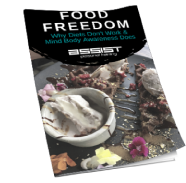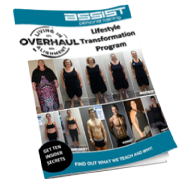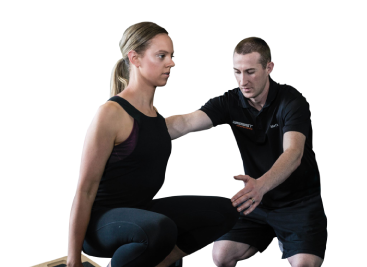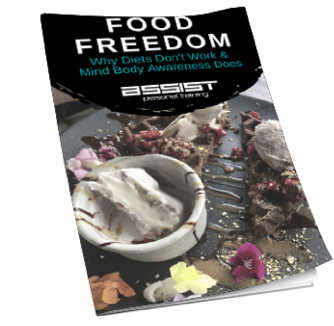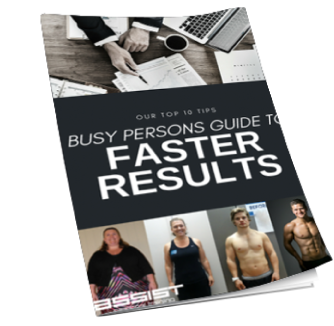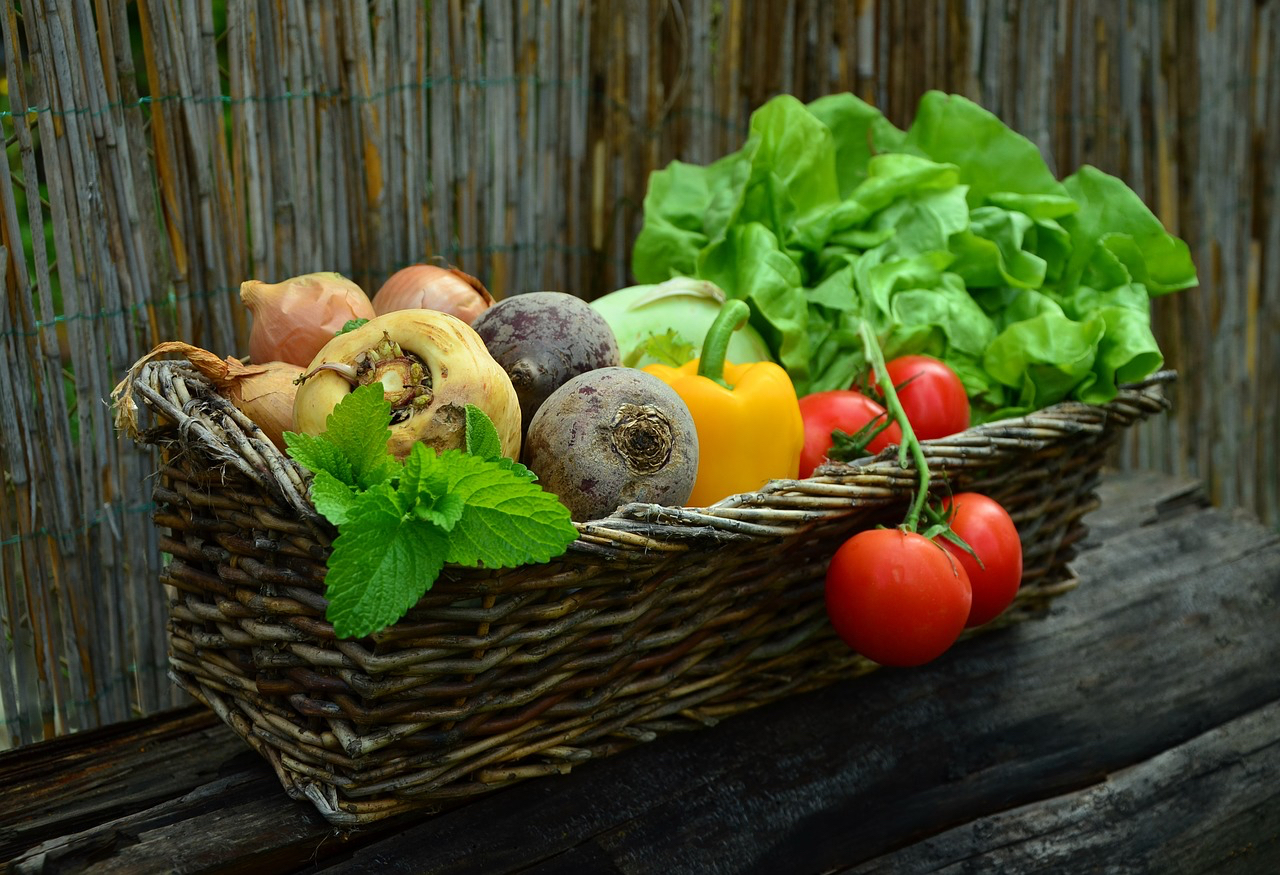
If you’re confused about what’s healthy or how to lose weight, you need to read this!
The plant based diet movement has become increasingly popular over the past few years and rightly so with the amount of disease we’re at risk of and the amount of highly processed foods we are consuming. In between it all, there are very passionate groups of people all claiming their way is the healthiest way to eat and you should do it too.
What the Health is the latest documentary doing the rounds at the moment. I finally got a chance to sit down and watch it. I love documentaries but you’ll rarely ever find a non biased documentary…just like research, the person funding the project or study is out to prove their point. So using your common sense and doing further research to come to your own conclusion is the best way to go about forming an opinion that you believe is right for you.
I’ve been helping clients with body composition changes since 2009 and attend lots of seminars and courses in the fields of nutrition and nutritional biochemistry. My approach comes from a health and wellness perspective. I am a certified metabolic nutritionist, not a doctor, I have no degrees or diplomas in nutrition but what I do have is lots of hands on experience working with clients getting them healthier and leaner. I am truly passionate about health and wellness and I dislike greedy corporations who value their bottom line more than peoples health. So when a client comes to me and asks me what should they be eating for a healthy approach to weight loss, the answer is, it depends.
The best diet for you depends on your goals, your mental state, your physical needs, your health, your lifestyle and more. The best diet for you to follow is the one that works for your body and your values. From there we make nutrition choices based on what is best for your goals. The words and thoughts expressed in this article are my own opinions that I have formed from my own experiences and learnings up until this point in my life. I am always learning more and as the saying goes, the more you learn, the more you realise realise you don’t know certainly rings true. There are always more questions and more factors to be considered so I’ll never claim to know it all or be an expert. The body is extremely complex, there are 500 quadrillion biochemical processes happening in the body per second 24 hours a day. No two people are identical, not even identical twins have the same biochemical make up. Identical twins can be 99% identical, this means at least 5 quadrillion biochemical processes can be different in identical twins. When it comes to any nutritional recommendations, nothing fits everybody, always it comes down to “it depends”. It depends on many, many factors.
So back to the doco! I’m glad I watched it. It’s been popping up in my newsfeed, people are quite passionate about it as they are with most opinions about diet. I can’t say I’ve watched a documentary that hasn’t got a biased agenda to influence people into believing one side as the truth…like religion lol! (If you know a bit about my past, you’ll know why I say this). It’s the directors job to get the story line across to the viewer. So what did I think of “What the Health”? It’s a mix of truth and misleading statements with a few extreme outlandish claims.
It’s no wonder people watch this documentary and are confused and jumping between eating meat or being vegan. If you’ve watched this documentary then I also encourage you to watch the review I’ve linked up below by Dr Jonny Bowden too as he raises some worthy points of consideration which I’m not going into here. Dr Jonny Bowden is someone I respect when it comes to nutrition. Here’s the link to his review if you want to watch both sides to draw your own conclusion.
From the courses I’ve done, the seminars I’ve attended and the hundreds of muscle testings I’ve done, I can honestly say that there is no “diet” that is perfect for everyone. For some people, a plant based diet is excellent, for others it causes a whole host of health issues. If you’re feeling lethargic, suffering from digestive issues, experiencing pain in your joints, lacking energy (to name a few things), then it’s worth addressing the foods you’re choosing to fuel and nourish your body with.
When it comes to the foods we eat, we are up against some big influences. There is a whole emotional connection we have to foods, thanks to clever marketing and advertising from the big corporations such as Kellogg’s, Cadburys, Coca-Cola Amatil etc. There is also a physical connection to foods, thanks to the help these companies get from food technologists working in the labs who work on ways to keep us addicted to certain foods using refined sugars, additives or chemicals.
Addressing foods can be a sensitive topic of conversation in some households. It can cause some people to shut off, become aggressive or just laugh it off. Their food may bring them comfort or bouts of happiness or they just may not be ready to make changes to the way they eat just yet. If you are one of these people, please know help is available.
Willingly making changes now is a whole lot more easier to deal with for you and your loved ones than being forced to make changes because your Doctor has advised your quality of life is about to change or your future is at risk. I am passionate about helping people never having to see that day, or at least prolonging it for as long as possible. Food is enjoyable and can still be enjoyed as you implement a healthier lifestyle. Pretty quickly you start to see the pain of not changing was worse than actually taking steps to better your lifestyle.
In my line of work, I see a lot of inflamed individuals, most clients who start with us are inflamed from foods. When I food test clients, I’ve found a small minority of people actually do better, from a health perspective, without meat based proteins in their diet but the key to removing amino acids the body uses is to ensure you are getting in what you need through other forms of supplementation. What I find needs to become priority is creating an environment within the body that allows the digestive and immune systems to function harmoniously, with as least stress as possible, whether that be stress from the environment that surrounds us or from the biochemical environment within us.
Here’s a photo taken of me 2 weeks apart. The photo on the left is what I looked like when I introduced foods that cause me an inflammatory response and the photo on the right is 2 weeks of not consuming those foods, mostly eating plant foods, quality meats and good fats again. This is why it’s so easy to see when a client is not on track with nutrition, as you can see, the signs are obvious.  Like anything, 100% commitment to your plan will allow for the truth of what you’re doing to be revealed, so attempting to be vegan or vegetarian and consuming a whole lot of processed packaged foods probably won’t help you in your quest to feel better and eliminate pain or attempt to reverse disease if your reasons for choosing that lifestyle are of course based on health and wellness.
Like anything, 100% commitment to your plan will allow for the truth of what you’re doing to be revealed, so attempting to be vegan or vegetarian and consuming a whole lot of processed packaged foods probably won’t help you in your quest to feel better and eliminate pain or attempt to reverse disease if your reasons for choosing that lifestyle are of course based on health and wellness.
Honestly the most dangerous foods we can consume are the foods that come to us in packets, or (this is where learning too much becomes scary) genetically modified foods or foods exposed to harsh chemicals. Our foods have dramatically changed since that late 1800’s. What is normal consumption for most of us today was not even created when our grandparents parents were alive, making overconsumption of chemicals in our foods a trivial matter for many because it is in almost everything sold in our supermarkets.
What I always focus on first with clients is bringing in more “high vibe” foods. These are not foods that have been processed, foods containing additives, numbers, colours, or ingredients made up in labs. They are foods containing a high water content, foods that have ideally been grown without chemicals and for those of us who need meat, its animals that have been raised on grass or fish that have fed off living plants. These foods can at times be expensive and sometimes not able to be consumed 100% of the time but consuming your supermarket variety of plant foods is better than packaged items you can pull off the shelf. Ensuring we are consuming enough plant food is crucial to optimal health and wellness. But more on meat.
From a health perspective, sometimes meat gets a bad wrap and other times, meat gets a great wrap. Some studies show it causes cancer, some studies show lack of it causes a breakdown in pathways that can affect how our body functions. For some people, a vegan diet is wonderful, while for others, it costs them a healthy functioning body. Part of this is to do with your genetics, which is a whole topic worthy of it’s own post.
When looking at information to make your own mind up about what’s best for your health, I would encourage you to check if studies are basing their findings on meat from grass fed animals and wild caught fish from clean uncontaminated waters. Did they allow participants in the studies to consume deli meats, meats containing fillers or hormones and farmed varieties, revealing their evidence based on these choices of “meat” as opposed to cleaner sources of meat. Another thing to consider is who funded the study, how many people partook in the study, over what duration, what other foods were they allowed to consume and how was it controlled, to name a few things.
Growing up, I hated meat. I wasn’t interested in eating it. I threw it under the table, I gagged when I was made to eat it so I could have my dessert (bribery in it’s finest form haha). Then I went through a period in my late 20’s where the smell of red meat made me feel physically ill. Once every 6 months I felt like steak. However my diet at the time was terrible. I was mainly living off cereal for breakfast, rice, pasta and canned tuna for lunch and dinner and cereal for dessert. I wasn’t particularly eating like that for health but it was what I liked and what I could afford to eat at the time. I thought I felt fine but that’s because I was used to what feeling crappy felt like.
When it comes to meat, grass fed is always going to be best. If all we’re eating is truckloads of hormone ridden, grain fed meat with very little plant food, then yes, the chances are higher that you may run into health problems down the track. If you’re wanting help to eat healthier and drop a few kilos on the way, then here are some simple tips you may wish to run by your health practitioner which might be of benefit for you:
- Ensure you’re drinking enough water throughout the day.
- Replace foods known to cause inflammation such as wheat and dairy with natural plant based options (by the way, inflammatory foods are different for everyone…one of the foods I used to get inflamed from is chia seeds, which most of us know to be a “superfood”).
- Consume high vibe foods such as live plant foods, organic where you can, raw if your digestive system can handle raw over cooked, whole food varieties of grains and wild or grass fed varieties of meat and fish.
- Increase your daily plant food intake, with fibrous carbohydrate foods taking up majority of your plate.
- When buying packaged foods, look for ingredient panels that list ingredients you can pronounce and the fewer the list of ingredients, the better.
- Source your meat from local farmers who can provide you with grass fed animal protein sources or wild caught fish.
If you need help incorporating healthier habits into your life, you can join me for Overhaul, our lifestyle transformation program or one of our lifestyle transformation workshops.

